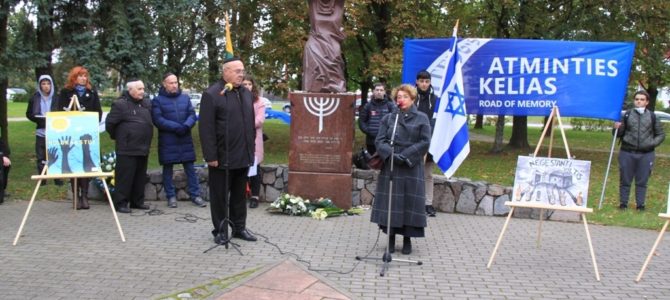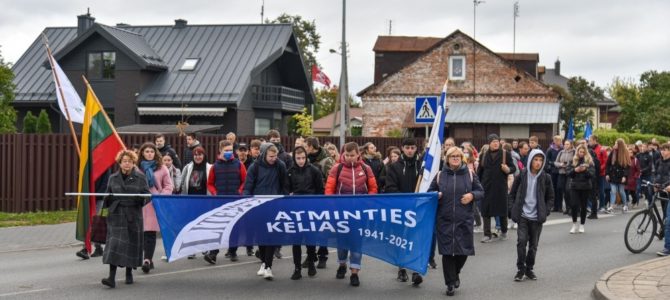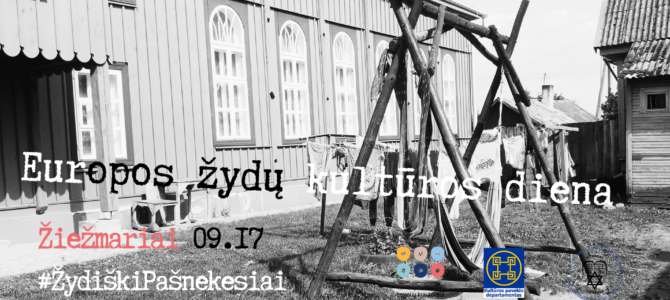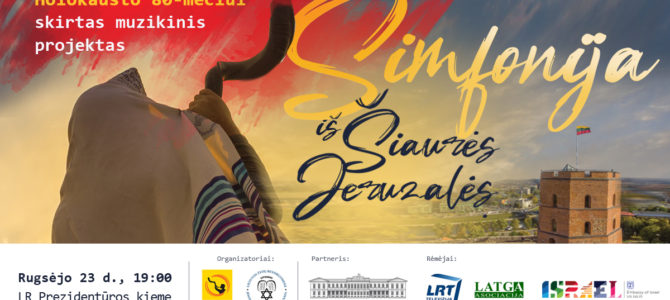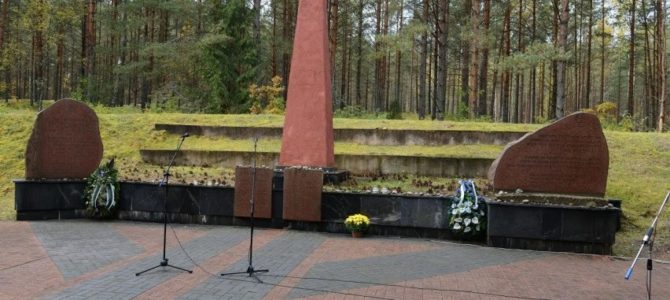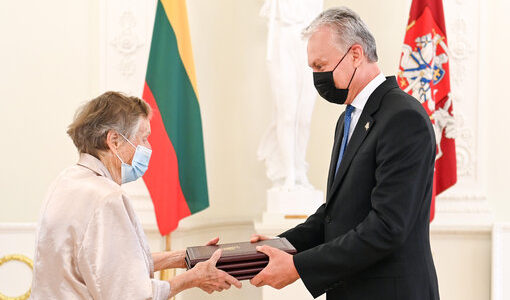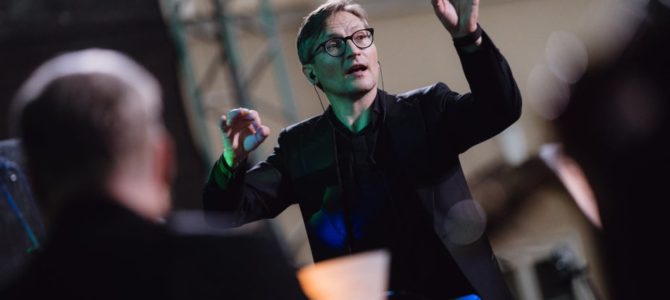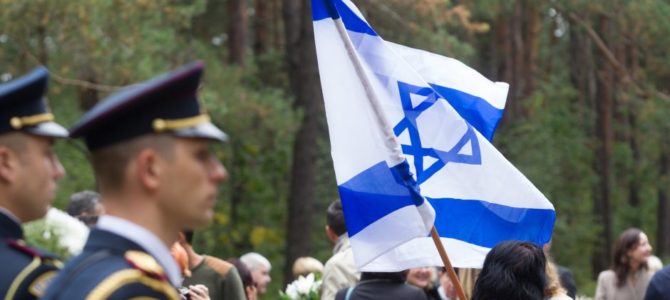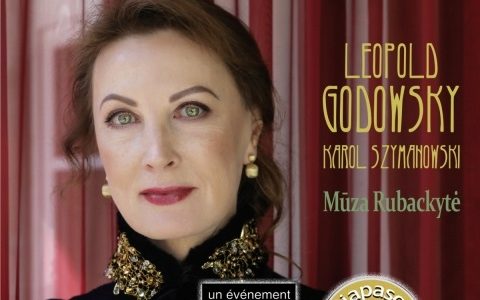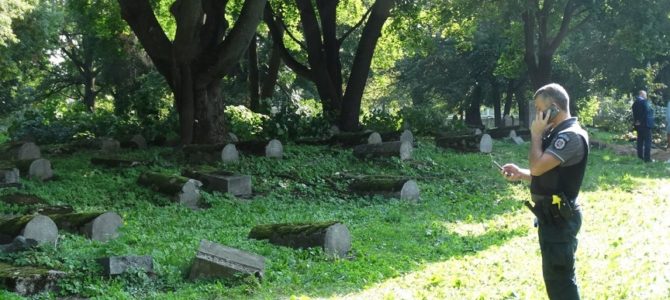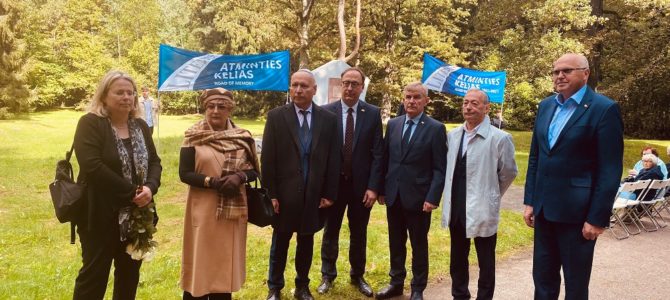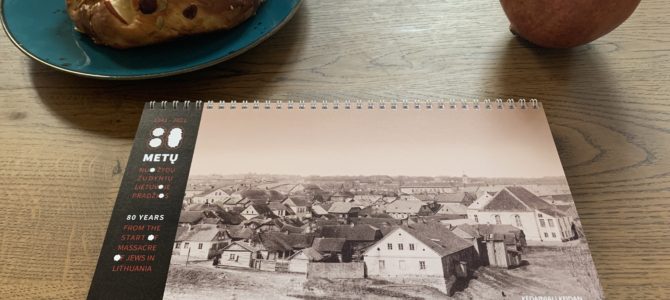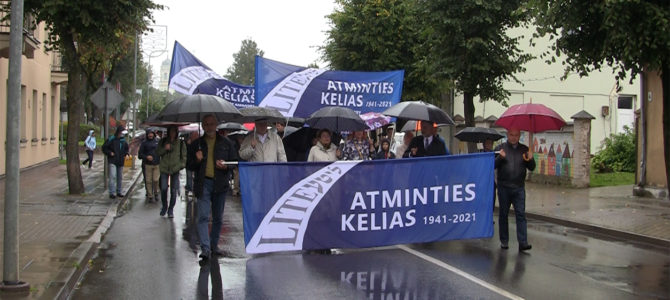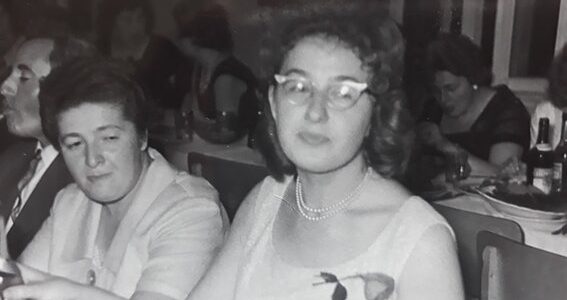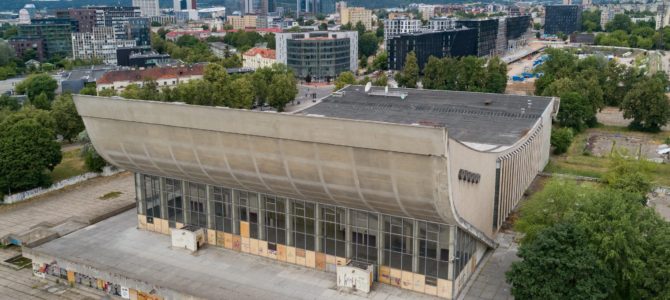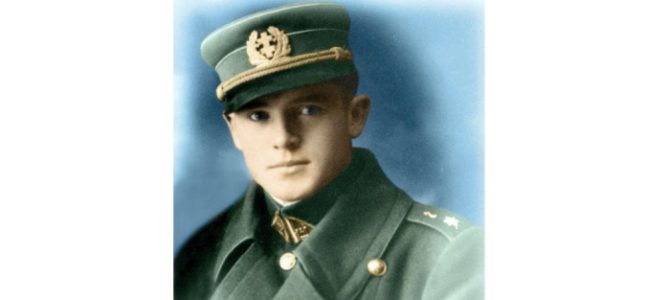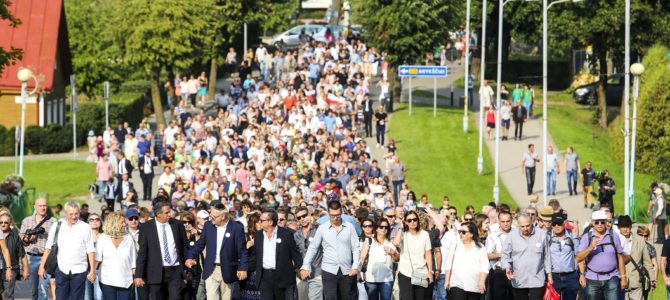The Panevėžys Jewish Community commemorated the 80th anniversary of the onset of the Holocaust in Lithuania on September 22 with a “Road of Memory” procession meeting at the Sad Jewish Mother statue and regrouping later at the former ghetto gates and the mass murder site in the Kurganava Forest were about 8,000 Jews were shot in 1941.
“Eighty years ago a black mark was made in the history of Lithuania, resulting in the taking of almost 200,000 lives and the lives of about six million Jews in Europe,” Panevėžys Jewish Community chairman Gennady Kofman said.
The largest mass murder sites near Panevėžys are in the Žalioji and Kurganava Forests, but the district has more than 30 mass murder sites in total.


